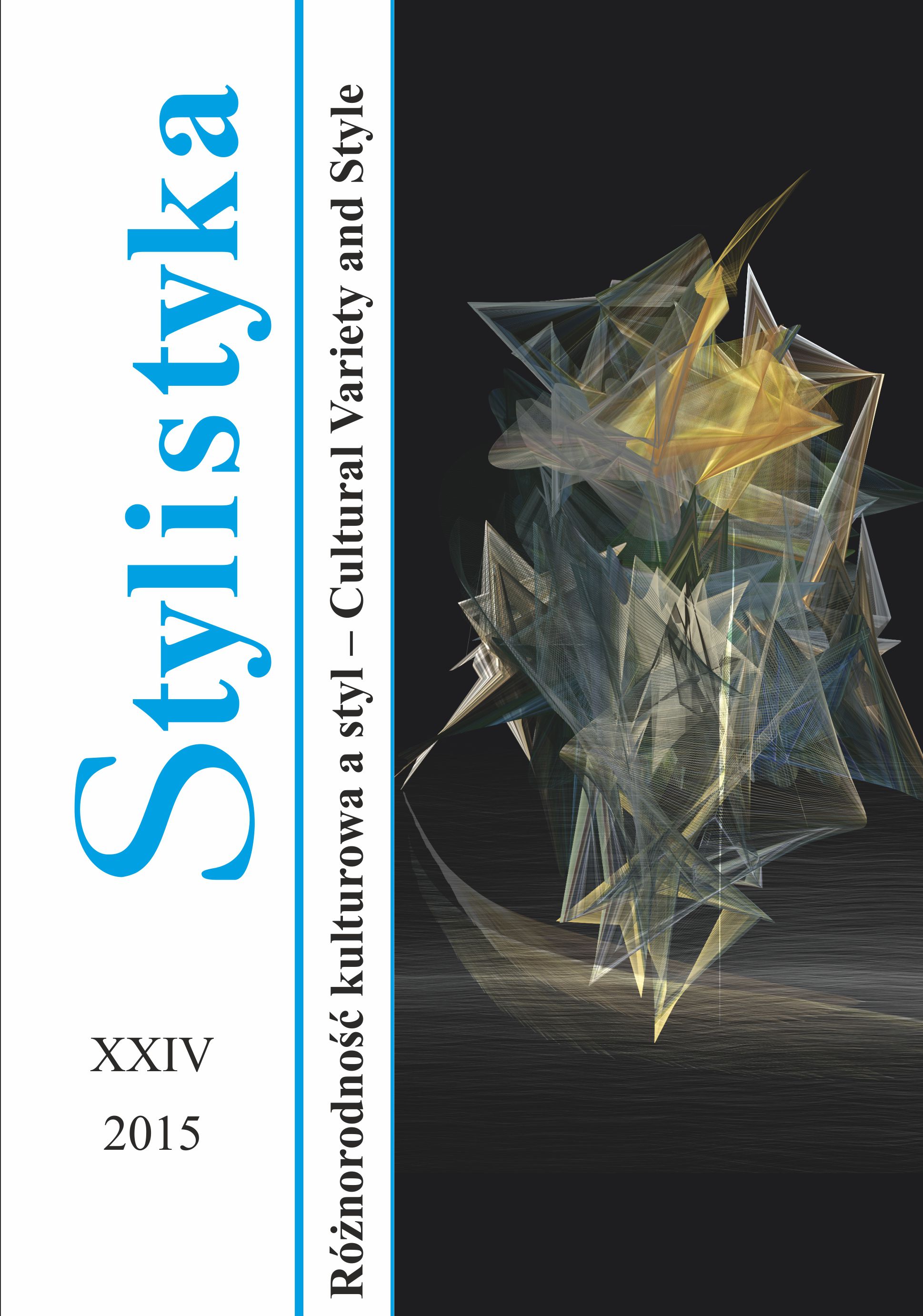ŁADNE MÓWIENIE O NIEŁADNEJ RZECZY.
Nice talking about an unattractive thing.
The contribution to Polish cultural patterns from the stylistic and social perspective
Author(s): Marzanna UździckaSubject(s): Language and Literature Studies, Philology
Published by: Uniwersytet Opolski
Keywords: cultural patterns: social type of language: style: folk song; legion song; soldier song; wojenka; wojneczka; wojaczka (Polish diminutives of war)
Summary/Abstract: This article is a contribution to the study of Polish cultural patterns’ sources and their performance in terms of stylistics and sociology. The methodological basis for the article is the idea in accordance to which each linguistic behavior is marked both stylistically and sociologically. Linguistic means abstracted from specific language behaviors are guidelines of stylistic and genre affinity of a text as well as social, pragmatic and genre competence of its creator. An illustration of this idea is the picture of the functioning of lexemes wojna (war) and wojneczka (diminutive of war). Their scope of meaning remains in conflict with respect to the connotation, association and lexicographical shots bundled with designatum of formative base, i.e. the lexeme war. Hence, the main aim of this article has been the question about the functioning of these lexemes in the culturally differential texts and about the scope of meaning depending on the social and functional conditions of use. The source of “unique” functioning of wojenka and wojneczka lexemes proved to be folklore, a folk song to be exact, where a large number of both diminutives results: first, from the fact that folk poetry is melic; secondly from typical for rural community point of view, according to which wojna, wojenka, wojneczka mean ‘a faraway place, a vague land’. A different scope of word meaning of the studied lexemes formed in legion songs from the First World War and some uprising songs. It allowed to talk about war with the same gentleness as about women and to emphasize the glorification of the specific kind of life and war deeds, as well as specific kind of joy and excitement in the fight for freedom of homeland, which was enslaved for 123 years. The custom of naming the hostilities wojenka or wojneczka and attributing to them slightly different meanings was recorded in the folk language but it has been gradually vanishing since the Second World War. Nowadays the word wojenka is used in a broader sense than given in dictionaries and refers not only to military conflict but to all types of conflicts, and very often gets ironic or humorous meaning. It is clear however, that the patterns of talking about a war which have achieved status of folklore or mass, are up-to-date and they play a role of a cultural identifier.
Journal: Stylistyka
- Issue Year: 2015
- Issue No: XXIV
- Page Range: 298-316
- Page Count: 19
- Language: Polish

